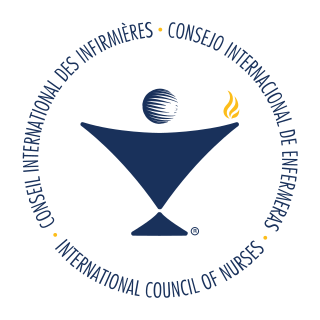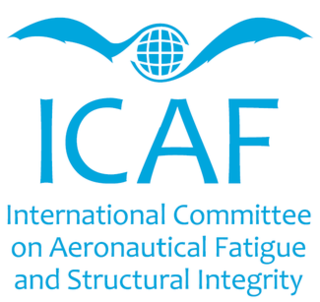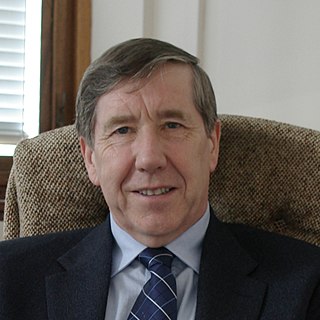The International Union of Architects is the only international non-governmental organization that represents the world's architects, now estimated to number some 3.2 million in all.

The Inuit Circumpolar Council is a multinational non-governmental organization (NGO) and Indigenous Peoples' Organization (IPO) representing the 180,000 Inuit and Yupik people living in Alaska, Canada, Greenland, and the Chukchi Peninsula. ICC was ECOSOC-accredited and was granted special consultative status at the UN in 1983.

The Organization of Ibero-American States, formally the Organization of Ibero-American States for Education, Science and Culture, is an international organization made up of 23 members states of Iberophone nations in Europe and the Americas, as well as one member in Africa. The OEI's membership is composed of all of the sovereign states of Ibero-America and the Iberian Peninsula, as well as Equatorial Guinea. All members are Portuguese and Spanish speaking nations, in addition to Andorra, which is predominantly Catalan speaking, though the organization does not include all the Iberophone nations of the world.

The Fédération Internationale de Volleyball, commonly known by the acronym FIVB, is the international governing body for all forms of volleyball. Its headquarters are located in Lausanne, Switzerland, and its current president is Ary Graça of Brazil.

The International Council of Nurses (ICN) is a federation of more than 130 national nurses associations. It was founded in 1899 and was the first international organization for health care professionals. It is headquartered in Geneva, Switzerland.

The International Council of Design is an international organisation representing the professions of design. The Council was founded in London in 1963 and celebrated its 50th anniversary on 27 April 2013. It is a non-profit, non-partisan, "member-based network of independent organisations and stakeholders working within the multidisciplinary scope of design."

The Harvard International Relations Council(HIRC) is a non-profit organization that seeks to promote awareness of international relations based out of Harvard University. As several semi-independent but centrally funded programs, the IRC focuses on a number of different outreach areas in an attempt to engage and inform people on international issues and policy-making. Programs within the IRC include:

The International Institute of Refrigeration (IIR), is an independent intergovernmental science and technology-based organization which promotes knowledge of refrigeration and associated technologies and applications on a global scale that improve quality of life in a cost-effective and environmentally sustainable manner, including:

The World Organization of Workers (WOW) is an international trade union federation.

The International Committee on Aeronautical Fatigue and Structural Integrity (ICAF) was initiated by Dr. Ir. Frederik Plantema, head of the Structures and Materials Department of the National Aeronautical Research Institute (NLL) in Amsterdam, the Netherlands in 1951. Dr. Plantema proposed international collaboration in the field of aeronautical fatigue in response to growing concerns regarding fatigue problems in metal aircraft structures. The first conference of the International Committee on Aeronautical Fatigue (ICAF) was held in Amsterdam in 1952, with participants from the Netherlands, United Kingdom, Sweden, Belgium and Switzerland. ICAF soon got a significant influence on the fatigue research in a large part of the world by suggesting the urgent problems to be studied and joining the efforts of many laboratories in different countries. It is an informal organization that consists of the General Secretary and the National Delegates from the (now) seventeen member countries. In 2010 the name was changed to the present one in order to clarify that the scope of the committee had broadened and now also includes topics such as damage formation and growth in composite structures, structural health and loads monitoring, probabilistic modeling of structural integrity, corrosion control, etc. The acronym ICAF was maintained.

The International Society for Soil Mechanics and Geotechnical Engineering (ISSMGE) is an international professional association, presently based in London, representing engineers, academics and contractors involved in geotechnical engineering. It is a federation of 90 member societies representing 91 countries around the world, which together give it a total of some 21,000 individual members. There are also 43 corporate associates from industry. The current ISSMGE President is Dr Marc Ballouz.

The Union Internationale des Avocats (UIA) or International Association of Lawyers is an international non-governmental organisation, created in 1927, that brings together more than 2,200 legal professionals from all over the world.

Professor Bhagavatula Dattaguru is an Indian engineer and academic. He has received several awards, including the Padma Shri Award, India's fourth highest civilian honour in 2005 in the field of science and engineering.

The Western Australian Labor Party, officially known as the Australian Labor Party (Western Australian Branch) and commonly referred to simply as WA Labor, is the Western Australian branch of the Australian Labor Party. It is the current governing party of Western Australia since winning the 2017 election under Mark McGowan.
The European Society for Structural Integrity (ESIS) is an international non-profit engineering scientific society. Its purpose is to create and expand knowledge about all aspects of structural integrity and the dissemination of that knowledge. The goal is to improve the safety and performance of structures and components.

Filippo Berto is an Italian professor and engineer, who works on fracture and fatigue mechanics at the Sapienza University of Rome. He is the vice president of the European Structural Integrity Society.

Emmanuel E. Gdoutos is a Greek academic, Professor Emeritus at the Democritus University of Thrace and Full Member of the Academy of Athens. He has worked in experimental mechanics, fracture mechanics, composite materials, and sandwich structures. His main scientific accomplishments include the solution of many problems of crack growth under combination of opening-mode and sliding-mode loading which were published in his book: “Problems of Mixed-Mode Crack Propagation." His contributions have been widely recognized worldwide through membership and leadership in scientific societies, national academies and honorary diplomas and awards.

The International Union for Pure and Applied Biophysics (IUPAB) is an international non-governmental organization whose mission is to assist in the worldwide development of biophysics, to foster international cooperation in biophysics, and to help in the application of biophysics toward solving problems of concern to all humanity. It was established in 1961 as the International Organisation for Pure and Applied Biophysics but then renamed as the International Union in 1966, when it became a member of ICSU, which itself was renamed in 2018 as ISC, the International Council for Science. Affiliated to it are the national adhering bodies of 61 countries, as well as the European Biophysical Societies' Association (EBSA), the Asian Biophysics Association and the Biophysical Society.

International Association of Paediatric Dentistry (IAPD) is a non-profit organization founded in 1969. The objective of IAPD is to contribute to the promotion of oral health for children around the world.

Tony Kinloch is a British academic and educator. He is a faculty member at the Department of Mechanical Engineering of Imperial College London and is a visiting professor at the Universities of New South Wales and Sydney.


















